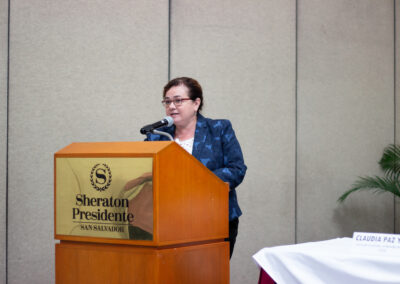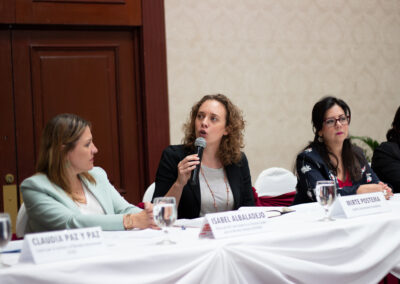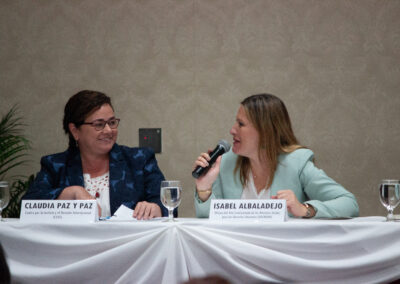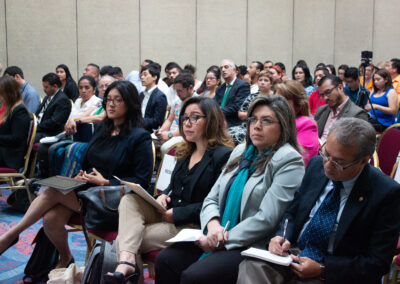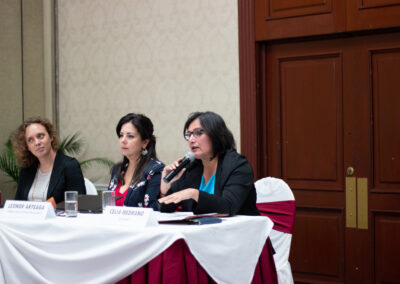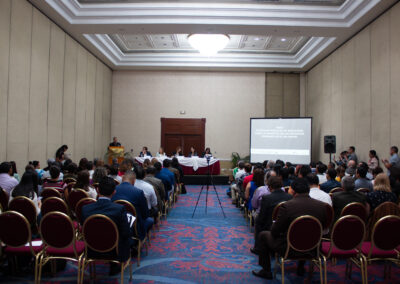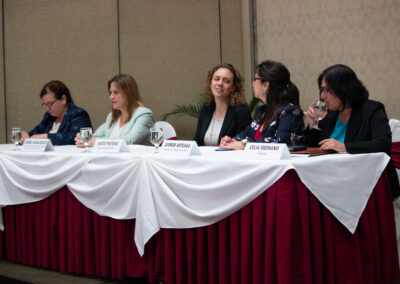
Date:
July 16, 2019
Time:
09:00am-01:00pm UTC-6Location:
Hotel Sheraton PresidenteAv. La Revolución, Col. San Benito
San Salvador, WA, El Salvador
Cost:
FreeSummary
The objective of this forum was to provide a space to discuss how public security policies in El Salvador can respect and guarantee human rights for all.
The forum also sought to highlight a range of key actors who could outline the history of public security policy in El Salvador in recent years and their relationship to human rights; to reflect on the impact of militarization on human rights; to generate a space for reflection on international standards to consider in relation to public policy for citizen security from a democratic point of view; to generate a space for public authorities to implement and endorse these public policies; to demonstrate the comparative advantages of approaching security from a human rights perspective; and to strengthen and promote the participation of civil society in the construction and evaluation of security policy.
Speakers
Celia Medrano
Director
Cristosal
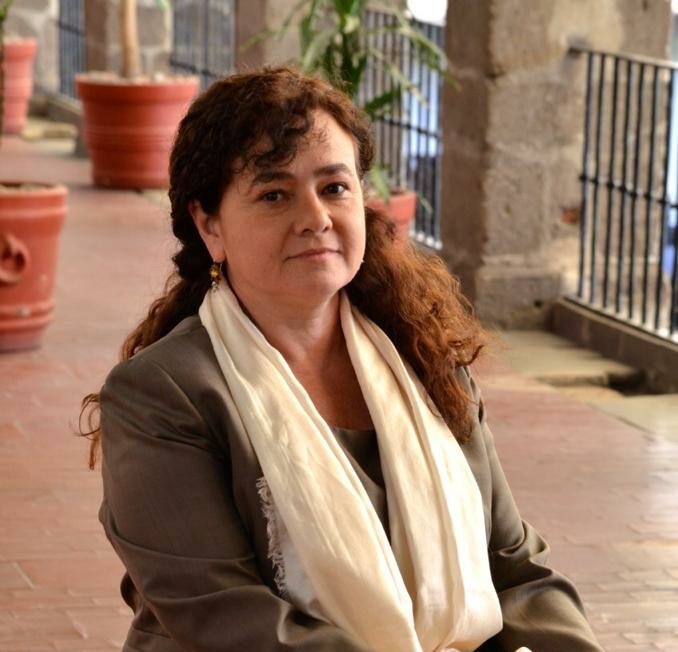
Isabel Albaladejo
Representative
OACNUDH
Jeannete Aguilar
Researcher on Violence and Security
Joaquín Mejía
Researcher for the Observation, Research and Communication Team (ERIC)
ERIC Honduras
Leonor Arteaga
Representative
DPLF
Ricardo Santamaría
Executive Director
Ministry of Justice and Public Security in El Salvador
Shana Santos
Representative
Ministry of Justice and Public Security in El Salvador
Conclusions
With the objective of promoting a discussion on respectful public policies on security and guaranteeing human rights that include democratic controls in El Salvador, the forum "Public Security Policies that Guarantee Human Rights in El Salvador" was held.
The event, organized by Cristosal, the Center for Justice and International Law (CEJIL), the Due Process Foundation, the Seattle International Foundation (SIF) and the UN Office of the High Commissioner for Human Rights (OACNUDH) united speakers from different fields to analyze how public policy can contribute to the construction of a safer and more democratic society.
"This forum, offered by international organizations and civil society, is a space for dialogue with state entities to discuss and analyze the importance of the observance of human rights in any initiative, policy or program related to public security, built upon the mandatory compliance with international regulations on rule of law," expressed Celia Medrano, Regional Director of Programs of Cristosal.
For this, the event drew upon historical and regional analysis, pertaining to the perception of instability and insecurity and the legitimate claim of the population in this regard. "To analyze the problem of security in the region, El Salvador should review the historical journey of violence against the most vulnerable populations. This is an opportunity to break cycle of violence, and to implement policies through transparent processes that allow the participation of civil society and support the reconstruction of the social fabric in the country," said Claudia Paz y Paz, Director of CEJIL for Central America and Mexico.
After almost 20 years of implementing "heavy-handed” security policies to fight against the violence and crime that El Salvador suffers; violence and insecurity persist at worrying levels and are far from being reduced. "Security policies that respect human rights are more effective and guarantee sustainability in the medium and long term," added Mirte Postema, SIF representative.
Latin America has been considered for years the most violent region in the world, with the highest rates of violence concentrated in Mesoamerica. According to figures from the recent Global Peace Index 2018, Mexico, Central America and the Caribbean, as a region, have maintained the highest levels of homicide, violent crime and general criminality over the past 8 years.
In this regard, the forum experts pointed out that there are concrete actions to be taken, such as strengthening an effective criminal investigation policy, promoting the proper application of criminal law, and regaining institutionality. Likewise, they agreed that El Salvador still has enormous challenges ahead to rebuild the social fabric and overcome inequality and to guarantee that the implemented policies overcome the structural obstacles facing the country today.

